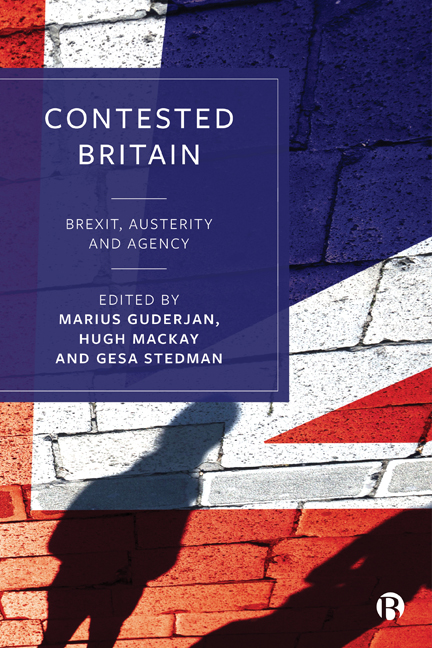8 - A Sovereign People? Political Fantasy and Governmental Time in the Pursuit of Brexit
Published online by Cambridge University Press: 10 March 2021
Summary
May faced a choice between a fantasy Brexit, designed only to gratify a minority who are immune to gratification, and real Brexits that require compromise on every side. It wasn't an appealing decision, but nor was it a hard one. (Behr, 2018)
There has been an outpouring of journalistic and academic writing that has used the idea of fantasy to describe and critique Brexit (see, for example, Gearty, 2016; Nawratek, 2017; Newbigin, 2017; Eaglestone, 2018; Shariatmardi, 2018). It has been one widely used figure through which to address both the political leadership (of the campaign to leave and of the Conservative Party in government) and the popular support for Leave. Much of the time, ‘fantasy’ has been deployed as an image driven by liberal scepticism – denoting the apparently illinformed, misguided and potentially disastrous project of leaving the EU. It has been frequently expressed in the image of searching for ‘unicorns’ as a way of registering the triumph of fantasy and desire over rationality (for example, Rigby, 2019). It is not the aim here to treat fantasy in these terms, as marking a politics that is explicitly or implicitly contrasted with hard-headed realism or rational political decision-making. Too much of the debate around Brexit has found it convenient to dismiss the vote to leave in such terms. However, this does not mean abandoning the idea of fantasy: this chapter is more interested in how fantasy may be a productive way of thinking about processes of political articulation and mobilization – offering a means of addressing projections and promises that find political purchase. The chapter certainly does not assume that only the Leave campaign traded in affective politics that involved the use of collective fantasies: the campaign to remain was dubbed ‘Project Fear’ by the Leave campaign for good reason, and contrasted the projected economic misery outside the EU with images of other empowered (largely consumerist) futures for UK citizens should they make the ‘reasonable’ choice.
In the context of Brexit, then, one might pay attention to specific aspects of political-cultural fantasy work that project a double dynamic of loss and restoration; examples of what Paul Gilroy has described as melancholia, borrowing and adapting the term from Freud to explore the postcolonial condition in Britain.
- Type
- Chapter
- Information
- Contested BritainBrexit, Austerity and Agency, pp. 117 - 130Publisher: Bristol University PressPrint publication year: 2020

